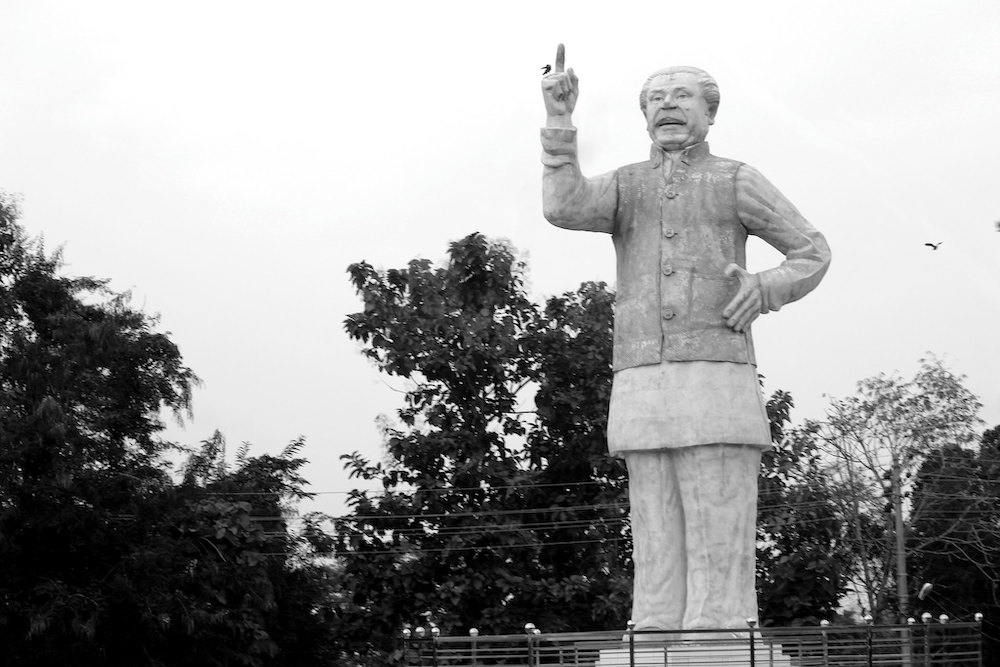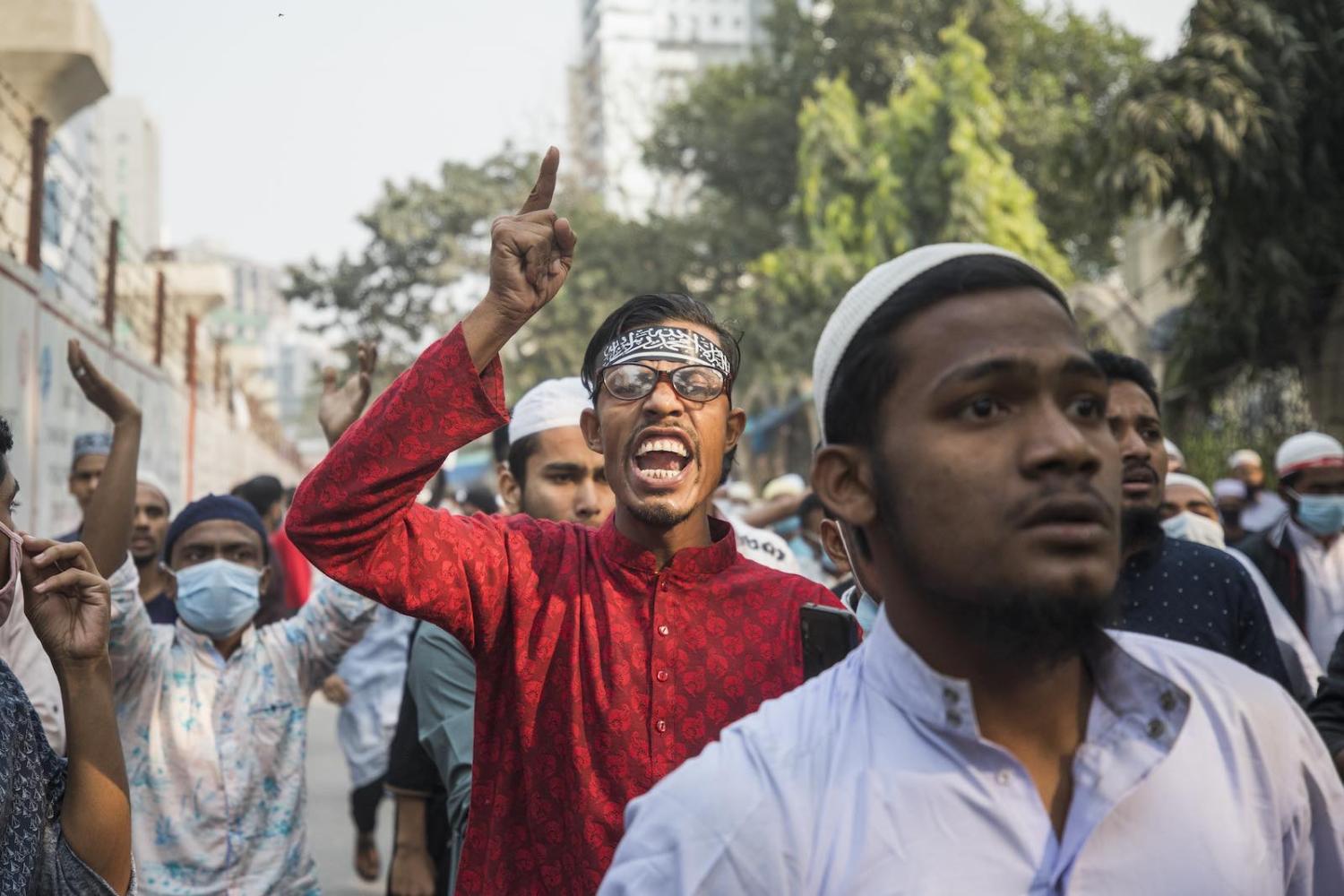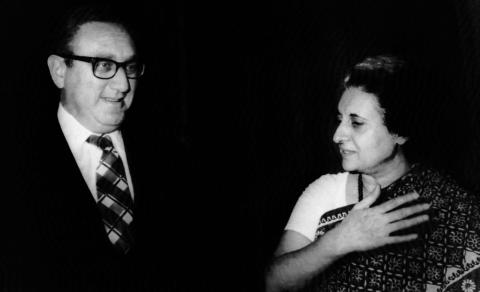The High Court of Bangladesh has directed that action be taken against those involved in causing damage in recent weeks to sculptures, statues and murals in the country. At the same time, an influential minister in the government of Prime Minister Sheikh Hasina has asked individuals and organisations not to set up statues of the country’s founder without first obtaining approval from a trust set up in his name.
These moves come in the light of the agitation by a section of Islamist organisations against statues being erected in various parts of the country in commemoration of the birth centenary of Sheikh Mujibur Rahman, who led the country to independence in 1971 and was assassinated in a violent coup with most of his family in August 1975. Since his daughter Sheikh Hasina rode to power in 1996 and then again in 2009, the government’s emphasis has been on ensuring justice for Mujib by putting his assassins on trial. Six of them have been tried and executed. Five remain outside Bangladesh. The trials have resonated with Bangladeshi sentiments, given that the prosecution of the assassins was prevented for 21 years between 1975 and 1996, through an indemnity ordinance by successive military and quasi-military regimes in the country.
With Covid-19 battering the economy, the government hardly needs the forces of bigotry to be upsetting a cart that is already teetering.
The decision to build sculptural representations of the nation’s founder was made in view of Sheikh Mujibur Rahman’s birth centenary, with year-long celebrations planned for 2020. Unfortunately, the coronavirus pandemic has largely put paid to the celebrations, but that has not got in the way of virtual observances of the centenary. Ironically, the erecting of Mujib’s statues has created an opportunity for the fundamentalist fringes of Bangladeshi politics to stir up controversy around a narrow view of Islamic principles. Notorious among such organisations has been the Hefazat-e-Islam (Protection of Islam), which in 2013 created mayhem on the streets of the country’s capital Dhaka to demand an implementation of a 13-point program.
The outfit has regularly made its character known, but in the years after 2013, it and the government reached a compromise that certainly did not make secularists in Bangladesh happy. The recent death of Hefazat leader Ahmad Shafi has further altered the equation, with his successor Junaid Babunagari now leading the Islamist agitation against the government.
Another Islamist body joining the chorus against sculptures put up in honour of Bangladesh’s founder has been the Khelafat Majlis, whose leading figures have vowed not to allow any “anti-Islamic” activities in the country.
The government is clearly in a dilemma, after its attempts to keep the Islamists happy – such as through the construction of new mosques and instituting changes in school textbooks with pro-Islamic themes – have now emboldened the right-wing fringe to send out misleading messages on religion to the country. Since the controversy about statues erupted weeks ago, public intellectuals have struggled to make it known that clear differences exist between sculptures and statues. Statues, as has been pointed out, are in no way religious idols in the way they happen to be in Hinduism, for example, but that is precisely the message the so-called purveyors of the Islamic faith are capitalising on: Mujib’s statues, they have argued, go against the spirit of Islam.

The upshot is the emergence of a problem which can only add to the government’s worries. With Covid-19 battering the economy, the nation’s garment industry is gasping for breath, workers whose remittances from the Middle East and elsewhere stabilised the national economy are now back home after losing jobs. A spike in the coronavirus situation is threatening worse conditions in the days ahead. So the government hardly needs the forces of bigotry to be upsetting a cart that is already teetering.
The public expectation, of course, is that the prime minister and her cabinet will be able to handle the crisis through drastic action against the mullahs. But such action must also take into account the fact that while Bangladesh is politically a secular state, its population is vastly Muslim. In other words, the government will need all the wisdom it can muster to defuse the situation peaceably.
Meanwhile, secular organisations which have consistently upheld the principles upon which the country went into a war of independence in 1971 have made themselves busy organising rallies to protest the rise of the religious right wing. The Muktijuddho Mancha – Liberation War Forum – is in the forefront of the resistance to the Islamists. Besides organising rallies around the country, secularist bodies have filed petitions with the judiciary against individuals who have led the agitation against sculptures and statues.
Much will now depend on how the government chooses to respond to the situation. One point, however, cannot be ignored: appeasement of the religious right has always been fraught with danger in the history of South Asia. Bangladesh’s people have been there before.

